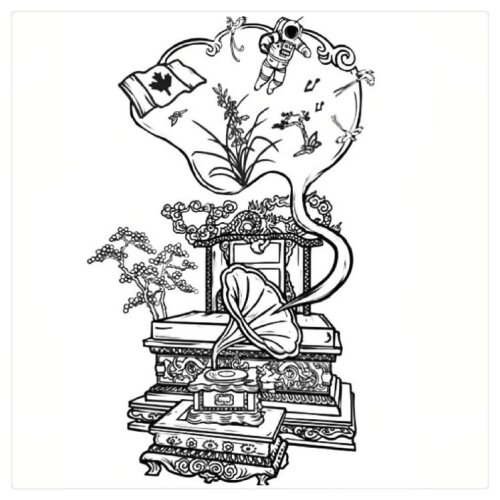Best Domestic Violence Lawyers in Markham
Share your needs with us, get contacted by law firms.
Free. Takes 2 min.
Free Guide to Hiring a Family Lawyer
List of the best lawyers in Markham, Canada
About Domestic Violence Law in Markham, Canada
Domestic violence is a serious issue that affects individuals and families throughout Markham, Ontario, and all of Canada. Domestic violence law is designed to protect victims and hold offenders accountable, regardless of gender, age, or relationship status. The term "domestic violence" refers to a range of abusive behaviours-physical, emotional, psychological, financial, and sexual-occurring within intimate or family relationships. In Markham, these laws are enforced by the local police services, courts, and specialized support organizations.
Why You May Need a Lawyer
A lawyer specializing in domestic violence can be crucial for several common reasons:
- You or a loved one are experiencing abuse and need urgent protection or safety planning.
- You have been accused of domestic violence and want to understand your rights and responsibilities.
- You need help obtaining a restraining order or navigating peace bonds.
- There are concerns over child custody and access resulting from domestic violence allegations.
- You wish to make a safety plan or need guidance with the police and court process.
- You require assistance with immigration or housing matters affected by domestic violence.
Legal professionals can provide advocacy, confidential guidance, and help ensure the law protects your interests.
Local Laws Overview
In Markham, domestic violence cases are prosecuted under Ontario and federal Canadian law. The main legal framework includes:
- Criminal Code of Canada: Offences such as assault, uttering threats, sexual assault, criminal harassment (stalking), and mischief can form the basis of domestic violence charges.
- Ontario Family Law Act: Addresses protection orders, child custody, access, and support in cases involving family violence.
- Emergency Protection Orders (EPOs) & Restraining Orders: Available to protect victims by limiting an abuser’s contact or approach.
- Children’s Aid Society (CAS): May become involved in cases where children’s safety is at risk due to domestic violence in the home.
- Mandatory Police Action: In Ontario, police are required to lay charges in domestic violence incidents where there are reasonable grounds to believe an offence occurred.
Domestic violence cases are treated with strict confidentiality and sensitivity by the authorities in Markham.
Frequently Asked Questions
What counts as domestic violence in Markham, Canada?
Domestic violence includes physical, emotional, sexual, financial, and psychological abuse within an intimate or family relationship. It also includes threats, harassment, or any act aimed to control or harm another person.
What should I do if I am in immediate danger?
If you are in immediate danger, call 911 for police help. Your safety and the safety of any children involved is the top priority.
Can I get a restraining order against my abuser?
Yes, you can apply for a restraining order through the Ontario Family Court to prevent your abuser from contacting or approaching you. A lawyer or victim support worker can assist with the process.
Will the police press charges even if I don’t want them to?
In Ontario, police must lay charges in domestic violence cases if they find reasonable grounds that an offence has occurred, even without the victim’s consent.
What are the possible outcomes for someone charged with domestic violence?
Outcomes can range from peace bonds and fines to probation, jail time, or required counseling, depending on the severity and specifics of the case.
What support is available for children affected by domestic violence?
Children can access specialized counseling, support services, and legal protection through family courts, Children’s Aid Society, and community organizations.
Will my immigration status be affected if I report domestic violence?
Your safety is the priority. Reporting domestic violence generally will not negatively affect your status. In fact, there are protections and special provisions for immigrants experiencing abuse.
Can domestic violence affect custody decisions?
Yes, courts consider the presence of domestic violence when making custody and access decisions, always prioritizing the child’s best interests and safety.
How can I support a friend or family member experiencing domestic violence?
Listen without judgment, encourage them to seek help, provide information about shelters or hotlines, and if necessary, assist them in contacting the police or a lawyer.
Do I need a lawyer to deal with domestic violence issues?
While you are not required to have a lawyer, having legal representation can help you navigate complex processes, protect your rights, and improve your safety and well-being.
Additional Resources
If you or someone you know is experiencing domestic violence in Markham, valuable support is available through:
- York Regional Police Victim Services: Provides emergency help and guidance for victims.
- Assaulted Women’s Helpline: Provides 24/7 support for women in Ontario facing abuse.
- Yellow Brick House: A local shelter offering safety, legal advocacy, and counseling.
- Victim/Witness Assistance Program (VWAP): Assists victims and witnesses involved in the criminal court process.
- Family Court Support Worker Program: Offers support for those navigating family court due to domestic violence.
- Legal Aid Ontario: Provides legal assistance for eligible individuals facing domestic violence issues.
- Ontario Ministry of Children, Community and Social Services: Offers emergency funding and resources.
Next Steps
If you are facing or are accused of domestic violence in Markham and need legal advice:
- Ensure your immediate safety and that of any dependents. Call 911 if the situation is urgent.
- Reach out to local shelters, helplines, or victim support organizations for emergency housing and support.
- Contact a lawyer who specializes in domestic violence cases. If cost is an issue, explore Legal Aid Ontario or free law clinics.
- Collect and securely store any documentation, messages, or evidence related to the abuse or accusations.
- Consider your long-term safety with a protection order or by developing a safety plan with professional help.
- If applicable, seek counseling or support for yourself and any children through community agencies.
- Stay informed about your legal rights, court dates, and any conditions attached to your case.
Taking prompt, informed steps can make a significant difference to your safety and legal outcome. Support is available-do not hesitate to ask for help.
Lawzana helps you find the best lawyers and law firms in Markham through a curated and pre-screened list of qualified legal professionals. Our platform offers rankings and detailed profiles of attorneys and law firms, allowing you to compare based on practice areas, including Domestic Violence, experience, and client feedback.
Each profile includes a description of the firm's areas of practice, client reviews, team members and partners, year of establishment, spoken languages, office locations, contact information, social media presence, and any published articles or resources. Most firms on our platform speak English and are experienced in both local and international legal matters.
Get a quote from top-rated law firms in Markham, Canada — quickly, securely, and without unnecessary hassle.
Disclaimer:
The information provided on this page is for general informational purposes only and does not constitute legal advice. While we strive to ensure the accuracy and relevance of the content, legal information may change over time, and interpretations of the law can vary. You should always consult with a qualified legal professional for advice specific to your situation.
We disclaim all liability for actions taken or not taken based on the content of this page. If you believe any information is incorrect or outdated, please contact us, and we will review and update it where appropriate.










